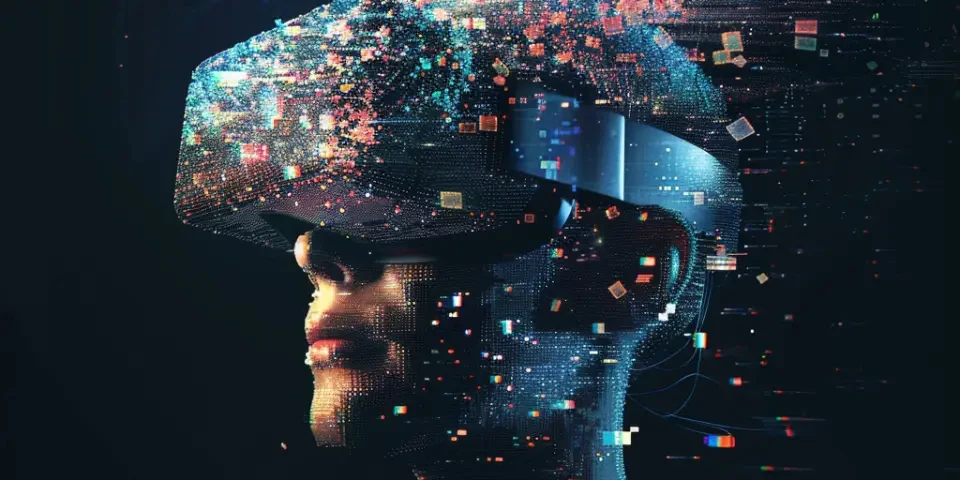The Future of AI Analyzing the Impact of Artificial Intelligence on Everyday Life
Artificial Intelligence (AI) is rapidly transforming various aspects of our everyday lives, from the way we work to how we communicate and even how we make decisions. This cutting-edge technology is poised to revolutionize numerous industries and reshape society as a whole. In this article, we will delve into the impact of AI on everyday life across several key areas, analyzing both the potential benefits and challenges it presents.
1. Healthcare
AI has the potential to revolutionize healthcare by improving diagnosis accuracy, optimizing treatment plans, and accelerating drug discovery. Through machine learning algorithms, AI can analyze vast amounts of medical data to identify patterns and predict individualized patient outcomes, enabling doctors to make more informed decisions.

On the other hand, concerns about data privacy and ethics arise with AI in healthcare. Striking the right balance between personalized patient care and maintaining privacy rights will be crucial in the future.
2. Transportation
The introduction of AI in the transportation industry has already begun, with autonomous vehicles being developed and tested. AI-powered systems can enhance road safety, reduce human errors, and optimize traffic flow, leading to more efficient and eco-friendly transportation.
However, implementing fully autonomous vehicles also raises questions about legal liability in case of accidents and the potential impact on jobs in the transportation sector.
3. Education
AI has the potential to revolutionize education by personalizing learning experiences and adapting to individual needs. Intelligent tutoring systems, powered by AI, can provide tailored content and real-time feedback to students, enhancing their engagement and educational outcomes.
Nevertheless, concerns about the role of AI in replacing teachers and the potential biases embedded in AI algorithms must be addressed carefully to ensure a positive impact on education.
4. Business and Work
AI technologies such as robotic process automation and machine learning are increasingly being used in business operations to automate repetitive tasks, improve efficiency, and drive innovation. This frees up human resources to focus on more creative and value-added work.
However, the rapid integration of AI into the workforce raises concerns about job displacement and the need for upskilling workers to adapt to the changing job market.
5. Communication
AI-powered communication tools, like virtual assistants and chatbots, have already become part of our daily interactions. These tools can understand and respond to human language, making communication more efficient and seamless.
But there remain challenges in ensuring that AI understands and respects cultural nuances, as well as addressing concerns about privacy and security in these conversational AI platforms.
6. Finance
AI is transforming the finance industry by enabling fraud detection systems, enhancing risk assessment models, and improving customer service through chatbots. Algorithms can process vast amounts of financial data in real-time, enabling faster and more accurate decision-making.
However, the use of AI in finance also raises concerns about potential biases in decision-making algorithms and the need for regulatory frameworks to ensure transparency and accountability.
7. Entertainment
AI is already playing a significant role in the entertainment industry, from personalized streaming recommendations to AI-generated music and movies. These technologies enhance the overall consumer experience, tailoring content to individual preferences.
However, questions about the originality and quality of AI-generated content and the potential impact on creative industries should be addressed to maintain artistic integrity.
8. Ethical Considerations
As AI becomes more pervasive in everyday life, ethical questions arise. Ensuring AI is developed and used responsibly, mitigating biases and discrimination, and safeguarding privacy are crucial considerations for society.
Frequently Asked Questions:
Q: Will AI replace human jobs?
A: While AI may automate certain tasks, it also creates opportunities for new job roles and skills, resulting in a shift rather than complete replacement of jobs.
Q: Can AI be biased?
A: Yes, AI can exhibit biases if trained on biased datasets. Addressing biases and ensuring fairness in AI algorithms is a critical challenge.
Q: What about AI ethics and privacy?
A: Ethical considerations about AI, including privacy concerns, are being actively discussed. Regulations and frameworks are being developed to address these issues.
References:
1. Smith, J., & Anderson, K. (2018). The impact of artificial intelligence on society. AI & Society, 33(3), 399-415.
2. Winfield, A. F. (2018). Ethical governance is essential to building trust in robotics and artificial intelligence systems. Philosophical Transactions of the Royal Society A, 376(2133), 20180085.
3. Eubanks, V. (2018). Automating inequality: How high-tech tools profile, police, and punish the poor. St. Martin's Press.
Explore your companion in WeMate